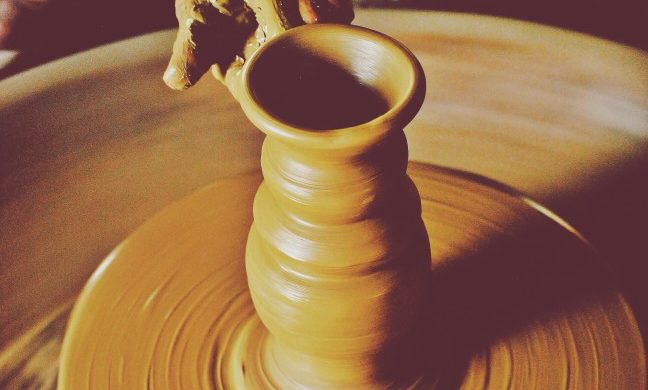Often credited as one of the first African-American owned businesses in Texas, several men with the surname Wilson made and sold pottery in Capote Hills, approximately 10 miles east of Seguin, from 1857 to 1903. During this time, three potteries involved the African-American Wilsons: first Guadalupe Pottery, second H. Wilson & Co., and third Durham-Chandler-Wilson. The stoneware produced at these sites was utilitarian and much in demand on the frontier.

Photo: @aj.hazeem via Twenty20
Hiram (also sometimes spelled Hyrum), James, Wallace, George, and Andrew were brought to Texas as slaves of John M. Wilson, Jr., who then hired professional potters to teach them the craft. These men took the last name Wilson upon emancipation on Juneteenth, and they were loaned money to start their own pottery operation. H. Wilson and Co. and Durham-Chandler-Wilson stoneware was predominately used for food preparation, storage, and serving. Rare examples are documented which were made as chamber pots, churns, and marbles. As most common-use stoneware did not have horseshoe-shaped handles and was not signed, the works for the H. Wilson and Co. and Durham-Chandler-Wilson are unique by boasting these features.

Photo: @veronicasioson via Twenty20
When not busy throwing, the African-American Wilsons of Capote began a Freedman’s Colony to boost others and assist with trying to stop violence toward African-Americans; the men themselves were known victims of at least two attacks. Hiram also founded Guadalupe College and the Capote Baptist Church in the area. In 1884, Hiram passed away, and the H. Wilson Company shuttered when James and his coworkers became part owners at Durham-Chandler-Wilson, which continued until 1903. During this year, the local Salt Creek flooded, which destroyed the worksite.
Today, the Wilson Pottery Foundation preserves the legacy of Hiram and the other Wilsons, who worked both in bondage and as free men to create incredible wares. Remaining examples of Wilson stoneware have been exhibited in museums in San Antonio, Austin, and Houston. The Foundation has a museum and an online store. Learn more there and see some beautiful example pieces!



